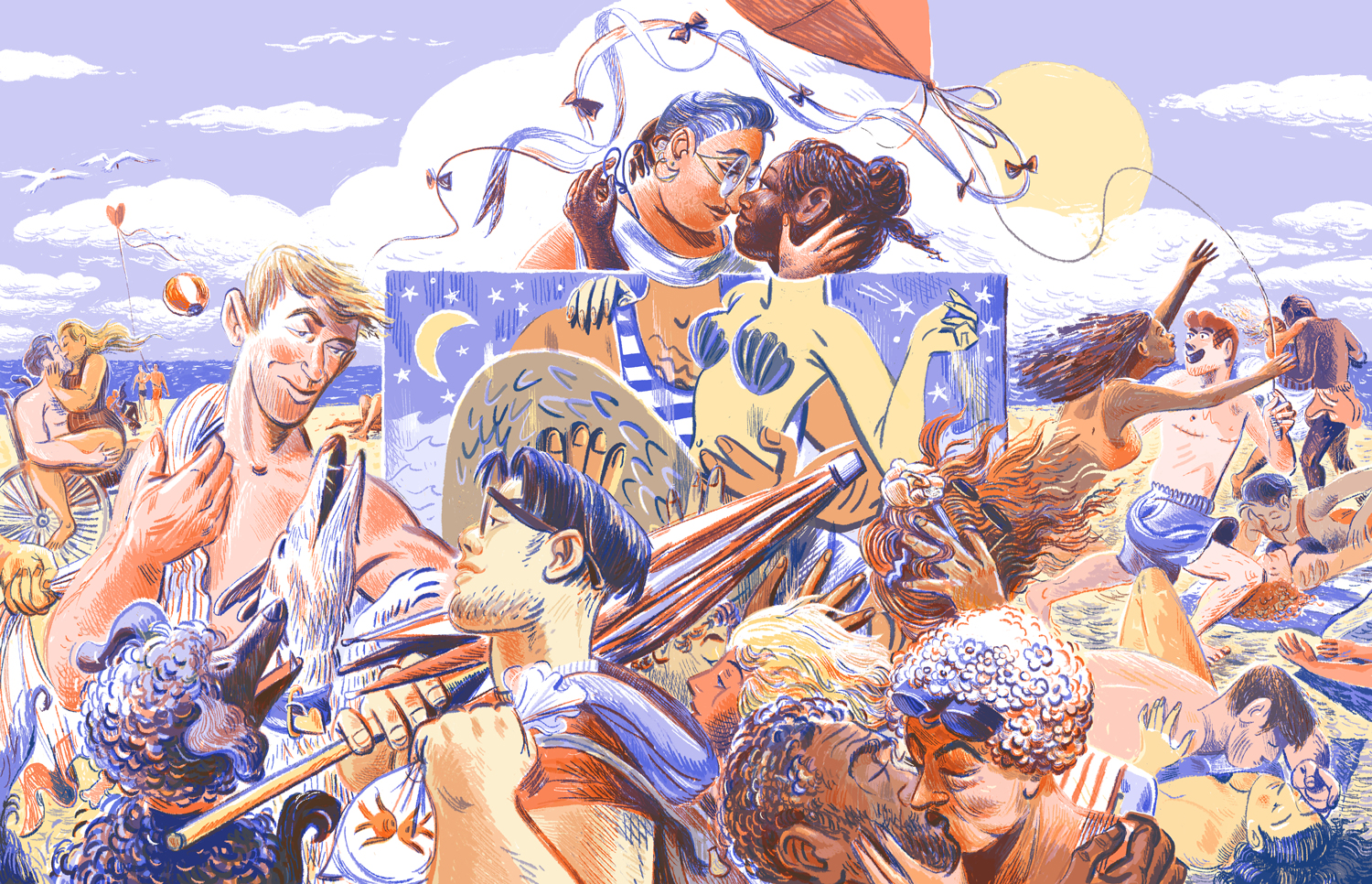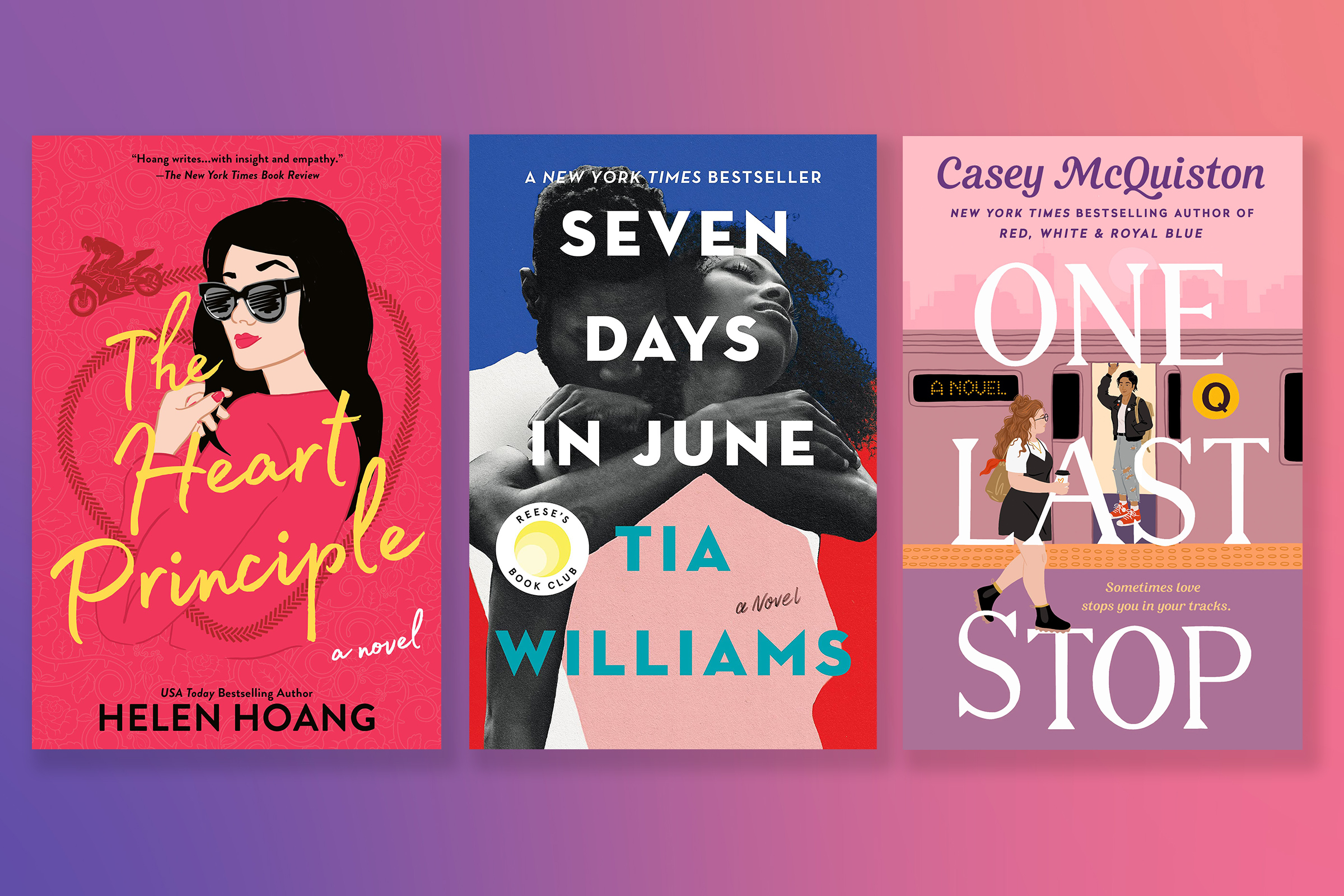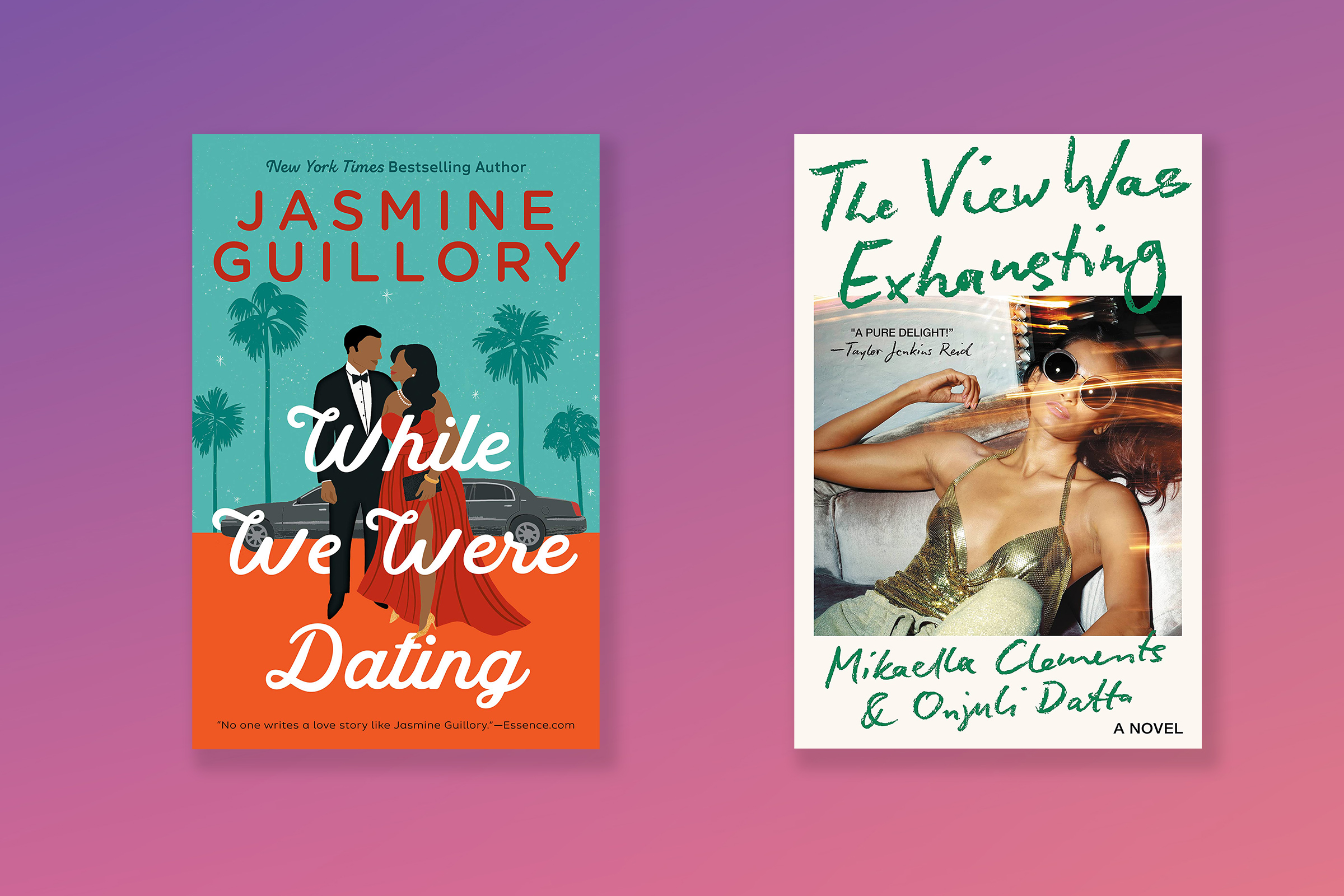
Lingering touches and stolen glances, jaw-dropping revelations and long-awaited reunions—the pleasures of romance novels abound. Yet for so long, one of the most popular (and lucrative) genres in publishing has centered stories by, for and about a homogeneous set of women, bolstering the stereotype of straight white women as the romantic ideal and cementing the economic power of writers who share that identity.
But despite long-standing systemic inequities, a growing set of authors has recently found success with swoony love stories featuring characters from backgrounds that reflect the diversity of the world we live in. Writers like Jasmine Guillory, who is about to publish her sixth novel in less than four years, and Tia Williams, whose latest novel was selected for Reese Witherspoon’s book club, celebrate Black women as romantic leads. Helen Hoang populates her best-selling fiction with neurodiverse characters, while Casey McQuiston, whose debut novel is set to be adapted by Amazon, fills her slightly fantastical worlds with queer characters. And with the door to more inclusive storytelling cracked open in the industry, newcomers like debut authors and real-life wives Mikaella Clements and Onjuli Datta are preparing to enter the scene. TIME spoke to these six romance authors about the evolution of the genre, the craft of writing and the novels that changed their lives.
We all have books that have shaped our perspectives. What was the first romance novel you ever read?
Onjuli Datta: I stole my mum’s copy of Sophie Kinsella’s Can You Keep a Secret? when I was way too young for it, and I was obsessed. There’s this scene where the heroine steals a scallop from the hero’s plate at dinner that I still think about when writing food—it was such a simple, sexy moment amidst the hijinks and drama.
Tia Williams: A Rose in Winter by Kathleen Woodiwiss. I was 8 years old, and way too young to be reading a sweeping bodice ripper. But the story definitely left its imprint on the fiction I’d grow up to write: high-stakes, ultra–dramatic, live-or-die, unreasonably romantic love stories.
What are the biggest misconceptions people have about the genre—and about writing it?
Helen Hoang: Lots of people think romance is cheap, trivial and the literary equivalent of pornography. To me, it’s an escape, catharsis, a bridge to build empathy, even a political or social statement, all while providing a full mind, heart and body experience.
Jasmine Guillory: There’s this idea that all romances are the same. Just because they all have happy endings doesn’t mean the books are the same. What happy means is different for everyone.

What’s the worst writing advice you’ve ever received?
Hoang: “Write every day.” As someone who struggles with mental–health issues, sometimes writing or working is the last thing I should be doing. Sometimes, in order to write better, I need to stop for a while and give my mind time to heal.
Casey McQuiston: To write toward broad market appeal, even if your heart’s not in it. I don’t think you can make good art when your main priority is selling it. Write what you want to write and what you want to read.
Williams: Stephen King is my absolute writing idol, but he feels that fiction writers should remove adverbs from their arsenal. How else do you explain that someone “groaned inwardly” or “sighed softly”?
Read More: 36 New Books You Need to Read This Summer
You all tell stories that combine the fun and levity of romance with social commentary. How do you find a balance between the two?
Williams: Honestly, it’s tough to be a Black female writer in 2021 and not have a lot to say, social-commentary-wise, no matter the genre you’re writing in. Black Lives Matter and #MeToo and whatever the hell the last presidency was—you can’t help but infuse reality into your story if it’s at all contemporary. But love stories still need to be told.
McQuiston: For me, it’s about finding the sweet spot between suspension of disbelief and punching up. A lot of romance stories take place in settings or under conditions that we may want to challenge in the real world—monarchies, for example—and I like committing to the bit while also subverting the tropes that come with it and inviting the reader to examine them with me.
Hoang: Some of my favorite romances are more serious in tone, but I love them for the intense emotions they evoke. Romance with social commentary flows and balances itself very naturally, as social issues create conflict, which in turn inspires emotion, which is the heart of romance. The tricky part for me is in making those emotions inspired by social issues relevant to a love story.
Helen, why is it important to you to portray neurodiverse characters in your work?
Hoang: That is my life experience, and writing helps me to better understand myself and process what I’ve been through. At the same time, it’s important to share this perspective with readers so they may either see themselves, if they’re neurodiverse as well, or understand and develop empathy and lose the sense that autistic people are “other.”
A lot of your books describe sex in visceral and sometimes intense terms. Striking the right tone to avoid cheesiness and make readers invest in these moments seems super- difficult. How do you approach those scenes?
Guillory: Sex scenes are part of the way I tell the story of this couple—who they are and how they relate to one another. I want sex scenes to feel fun and exciting, yes, but also to tell the reader something about these characters and their relationship. Is that character emotional? Uptight? Funny? How do these people feel about one another?
Tia, the protagonist of your new book, Eva, is a famous erotica novelist. How does your approach to writing sex scenes compare with hers?
Williams: I thought it’d be interesting and funny to write a character who invents ultra-steamy sex scenes for a living—and yet hasn’t had sex in ages. At the time I was writing Seven Days, I was extremely single, like Eva. So our sex-scene strategy was pretty much the same: lots of imagination and wish–fulfillment fantasy.

Mikaella and Onjuli, as a gay couple, what was it like writing about a straight relationship?
Mikaella Clements: It was fascinating to navigate our characters through the many layers of power, desire and difference which exist in a straight relationship and examine the tensions that might arise. At the same time, there are many things about love which are universal.
Does every romance novel need to have a happy ending?
Guillory: Not every love story does, but every book called a romance does. When readers are specifically looking for a romance, they want a book with a happy ending.
Hoang: When readers trust that everything is going to be O.K. in the end, they open their hearts to experience a wider range of emotion, because they’re not protecting themselves from pain. This is something special to the genre.
Datta: The most important thing is to leave your characters in a place where the reader can say goodbye to them, even if they don’t want to.
More Must-Reads from TIME
- Cybersecurity Experts Are Sounding the Alarm on DOGE
- Meet the 2025 Women of the Year
- The Harsh Truth About Disability Inclusion
- Why Do More Young Adults Have Cancer?
- Colman Domingo Leads With Radical Love
- How to Get Better at Doing Things Alone
- Michelle Zauner Stares Down the Darkness
Write to Annabel Gutterman at annabel.gutterman@time.com